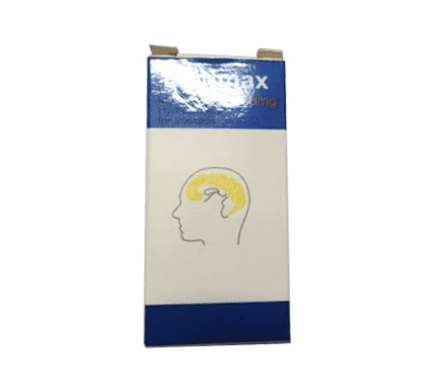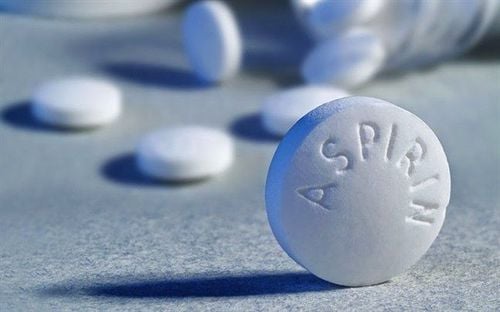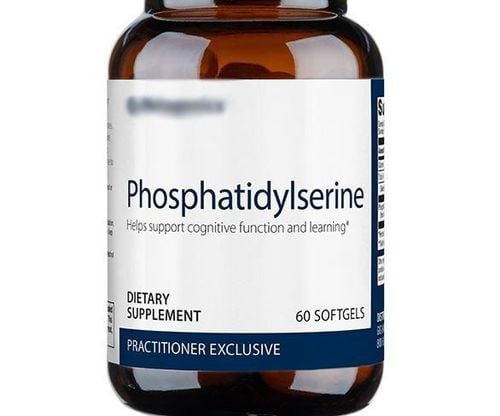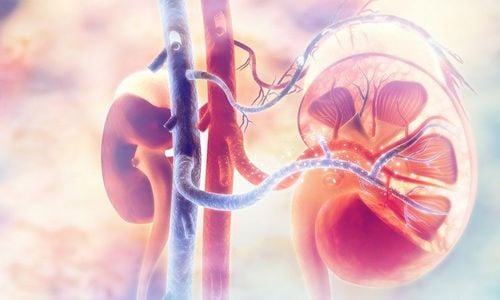This is an automatically translated article.
The article is professionally consulted by Master, Doctor Do Nguyen Thuy Doan Trang - Head of Extracorporeal Circulation Team - Cardiovascular Center - Vinmec Central Park International General Hospital. The doctor is a leading expert in Extracorporeal Circulation in cardiac surgery and cardiac resuscitation, Cardiovascular medical treatment.Untreated and well controlled hypertension will lead to severe damage to target organs and cause dangerous complications such as cerebrovascular accident, myocardial infarction, stroke, aortic dissection, heart failure. heart, kidney failure ... even lead to death.
1. When is it called hypertension?
According to the World Health Organization (WHO) and the American Heart Association (ACC/AHA) in 2017, people with hypertension set a target blood pressure when their blood pressure readings are lower than 1430/980 mmHg. At the same time, WHO and the Council of the World Hypertension Society (ISH) in 2020 have classified hypertension as follows:Raised grade I: High normal: when blood pressure is between 130-139 and/or 85-89 mmHg; Grade II elevation: when blood pressure is from 140 - 175/100 - 100-99mmHg Grade III: when blood pressure is from 160/110mmHg or higher. The European Society of Cardiology (ESC/ESH 2018) stipulates a target blood pressure of less than 140/90 mmHg, for people with diabetes, a target blood pressure of less than 130/80 mmHg.
However, the blood pressure of a normal person also fluctuates markedly, blood pressure usually increases gradually from waking up in the morning until 10 am and increases more or less depending on movement and mental state. God. Therefore, when sleeping, blood pressure will be about 20mmHg lower than normal work, 10% higher than in the afternoon.
Trắc nghiệm: Huyết áp của bạn có đang thực sự tốt?
Huyết áp cao hay thấp đều ảnh hưởng đến tình trạng sức khỏe con người. Để biết tình trạng huyết áp của bạn có thực sự tốt không, hãy làm bài trắc nghiệm sau đây để đánh giá.2. How dangerous is high blood pressure?
High blood pressure is very dangerous, but there are few symptoms to show, so many people do not know they have high blood pressure but accidentally due to routine medical examination or for some other reason discovered high blood pressure.However, in some cases, there are symptoms such as: nervousness, feeling heart palpitations, headache, momentary dizziness, red face, sweating...

High blood pressure is very dangerous because there are Risk of complications such as:
Cardiovascular complications Long-term high blood pressure will damage the endothelium of the coronary arteries, making it easier for low-density lipoprotein (Cholesterol-LDL) molecules to travel from the blood vessel. adheres to the vessel wall, then forms atherosclerotic plaque and narrows blood vessels, especially coronary arteries.
When coronary artery stenosis is much, the patient will feel chest pain, chest tightness when exertion, when exercising a lot, climbing stairs, the pain decreases when the patient stops exerting.
If the atherosclerotic plaque is cracked or broken, a blood clot forms in the coronary artery, blocking the coronary artery, causing the patient to have a heart attack. When having a heart attack, the patient will feel severe pain in the chest, shortness of breath, sweating, pain can spread to the neck, left arm and back.
High blood pressure causes the heart muscle to enlarge. Patients with a heart attack due to high blood pressure will have an area of the heart muscle that dies, unable to contract, leading to heart failure. Long-term high blood pressure causes the heart muscle to enlarge, if left untreated, high blood pressure will also lead to heart failure.
Brain complications Brain hemorrhage: When high blood pressure leads to a cerebrovascular accident, the cerebral blood vessels will not be able to withstand the pressure, leading to rupture, causing a cerebrovascular accident. At that time, the patient suffers from cerebral hemorrhage causing hemiplegia or complete paralysis, severe can be fatal. Symptoms of the patient depend on the large or small bleeding area, and depending on the location of the bleeding area.
Cerebral infarction, cerebral palsy: High blood pressure narrows the blood vessels supplying the brain (similar to coronary artery damage), if the atherosclerotic plaque is cracked, broken, forming a blood clot, blocking the cerebral blood vessel causing death. brain region also known as cerebral infarction, cerebral palsy.
Cerebral ischemia: High blood pressure narrows the carotid artery and cerebral artery, making the blood pumped to the brain not enough, causing the patient to feel dizzy, dizzy, sometimes unconscious.
In hypertensive people, blood pressure that does not drop at night or excessively drops or spikes at any time (most commonly in the morning) is a disadvantage because it is very easy to have a stroke.
People who have a stroke due to high blood pressure can die if emergency care is not timely or fall into a coma with vegetative life. , speech difficulties, memory loss, confusion....
Kidney complications High blood pressure damages the filter membrane of kidney cells, causing the patient to urinate protein (normally absent), for a long time cause kidney failure. High blood pressure also narrows the renal artery, causing the kidneys to secrete more renin, causing higher blood pressure. If the renal artery is narrowed for a long time, it will cause kidney failure.
Eye complications High blood pressure will damage retinal blood vessels, thicken and harden artery walls, narrowing the lumen. If there is a process of hardening of the vessel wall, the arteries will compress the veins and impede circulation, causing the patient to damage the eyes and progress in stages.
High blood pressure also causes retinal bleeding, optic disc edema, optic discs that reduce vision, and can even lead to blindness.
Peripheral vascular complications High blood pressure will cause the aorta to enlarge and may dissect and rupture the aortic wall, leading to death.
High blood pressure also narrows the iliac arteries, leg arteries, and femoral arteries. When the arteries of the lower extremities are narrowed much, the patient will have symptoms of walking a distance, then the leg will hurt, have to stop and rest.
Stroke In hypertensive people, the blood pressure does not drop at night or drops excessively or spikes at any time (most often in the morning) is a disadvantage because it is very easy to have a stroke.
People with high blood pressure and stroke can die if emergency care is not timely or fall into a coma with plant life, if they survive, they will leave severe neurological sequelae such as hemiplegia, walking, Difficulty speaking, memory loss, confusion....
In hypertensive people whose blood pressure does not drop at night or drop excessively or spike at any time (most commonly in the morning) is unfavorable factor because it is very easy to have a stroke
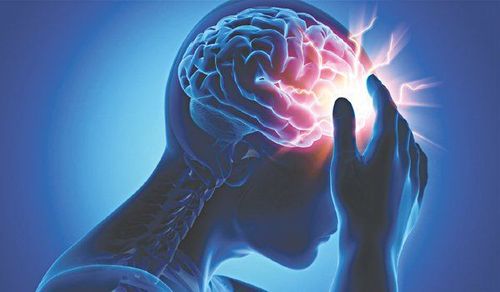
The vast majority of patients with high blood pressure have no warning signs. Many patients feel completely normal, because they accidentally find out that they have a medical condition. Therefore, regular blood pressure check, especially those at high risk (such as the elderly, obese, sedentary, having a family member with high blood pressure...) is very necessary. necessary and important.
3. Treatment of hypertension
The goal of treatment for high blood pressure is to keep the patient's blood pressure stable, usually below 140/90 mmHg for the overall blood pressure goal. However, for patients with both hypertension and diabetes or chronic kidney disease, the doctor will recommend a more rigorous course of treatment to keep blood pressure stable below 130/80 mmHg. .3.1 Lifestyle changes This is a non-drug approach that plays an important role in the overall treatment regimen. On the advice of doctors, patients can control blood pressure by:
Adjust diet: healthier and use less salt (less than 6g/day); Exercise regularly and moderately;

3.3 Treating hypertension in an emergency Some hypertensive emergencies require immediate treatment in the emergency room or intensive care unit, as the patient's risk of death is at this point. quite tall. The patient may be given oxygen and emergency antihypertensive medication to quickly improve the situation.
Vinmec International General Hospital deploys a package of hypertension examination from basic to advanced to help customers proactively check and screen for risks, complications and levels of hypertension.
The examination package is applied to patients who are obese, have a habit of eating salty, high salt foods, often smoke cigarettes, have a history of hypertension.... Especially the older the person, the higher the risk of hypertension. The higher it is, the sooner you should be screened for hypertension.
Please dial HOTLINE for more information or register for an appointment HERE. Download MyVinmec app to make appointments faster and to manage your bookings easily.





